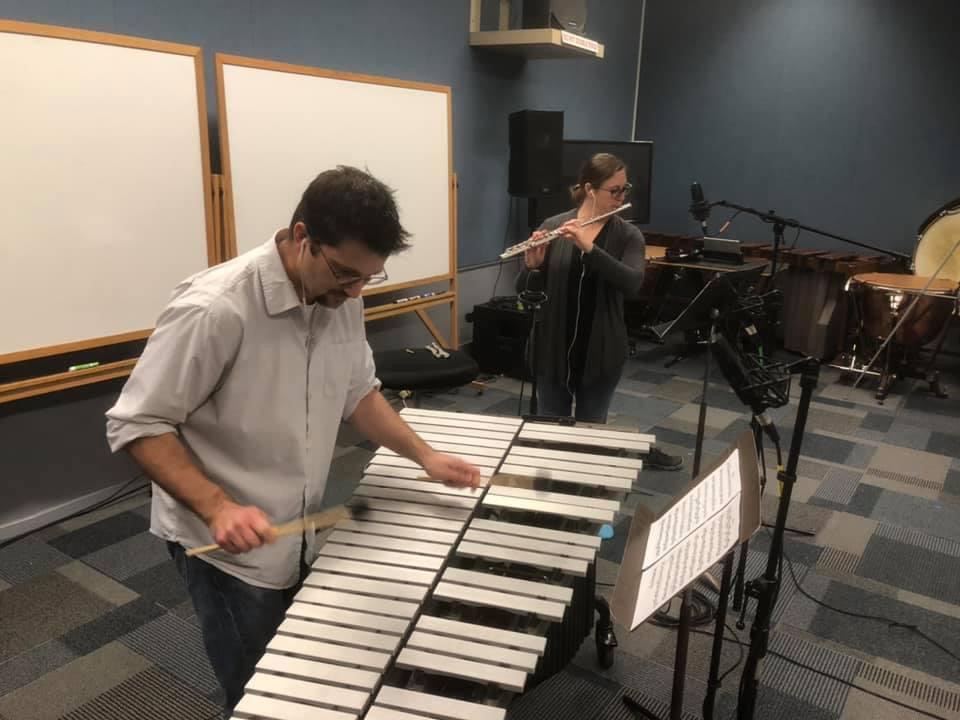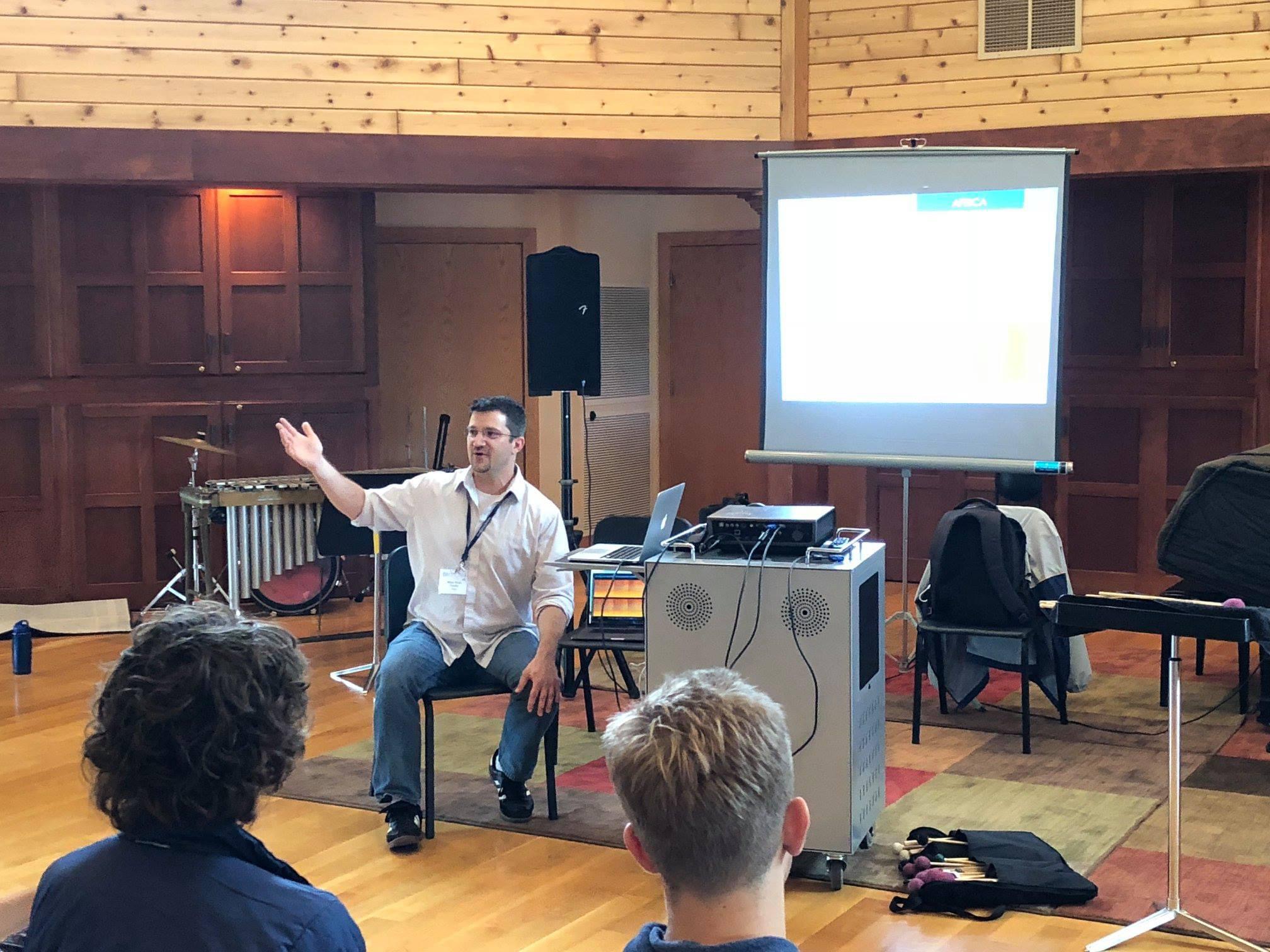We recently connected with Brian Nozny and have shared our conversation below.
Brian, thanks for taking the time to share your stories with us today Have you been able to earn a full-time living from your creative work? If so, can you walk us through your journey and how you made it happen? Was it like that from day one? If not, what were some of the major steps and milestones and do you think you could have sped up the process somehow knowing what you know now?
While my career goal always involved music, it went through a number of different iterations before I landed on what I ended up with as a college professor of music. I first went to school for music education, planning on being a high school band director. After about a year I felt that wasn’t for me, and pivoted my music major to performance and composition with the hopes of writing music for video games. While pursuing a graduate degree in composition I burned out on writing music, and pivoted again to pursuing a career in academia teaching percussion. The difference is here at least I saw the diversity that having a graduate degree in composition would give me, so I finished that degree. The academia plan was the one that stuck, and after pursuing additional graduate studies I earned my doctorate and from there began teaching full-time at various universities before finally landing at my current position at the University of South Alabama.
While a main source of my income, health benefits, etc. come from my position at the university, I would not say that alone encompasses my career. I am also a freelance performer, playing this year alone in the Canary Islands and Ireland as well as regionally. I’m also a composer with my works being performed regularly throughout the world. Beyond that, I created a small boutique instrument company which makes wind chimes specifically made with percussionists needs in mind. Some of my clients include Grammy Award winning Third Coast Percussion, the Eastman School of Music, and The Julliard School.
I list all of this above to illustrate that even with “a steady day job” in my field, artists today of any kind usually have more than one revenue stream in order to provide for their livelihood. This diversity can lead to a number of new and exciting opportunities that can help to sustain ourselves on many different levels.

Awesome – so before we get into the rest of our questions, can you briefly introduce yourself to our readers.
I was born and raised in upstate New York with very supportive parents who had no idea what to do with a son that wanted to go into music (I’m the only musician in my family). My music studies during college put me on a few varying paths until I decided to go the academic route teaching full time as the Director of Percussion Studies at the University of South Alabama.
In addition to my teaching position and being a freelance performer, a good amount of my creative activity is in composition. While as a student I wrote for a variety of ensembles, as my career shifted towards percussion performance, I used my composition skills to help set me apart from other percussionists. Now I write almost exclusively for percussion. I’ve been very lucky to write for incredible artists such as Keith Aleo, the Caixa Trio, and NEXUS to name a few.
What I love about my career is how varied it is. Just like the field of percussion where I am expected to play everything from drum set to marimba to tambourine, the diversity of my activities each day helps me to always feel invigorated. From teaching courses in percussion and music business during the day, I can then spend the afternoon in an orchestral rehearsal and end the night in my home studio working on a new composition. All these activities help to inform each other, and I’m not sure I’d have what success I’ve had if I wasn’t working in all of these activities.

What do you think is the goal or mission that drives your creative journey?
Honestly, it’s always remembering how lucky I am to be able to make a living doing something creative. The fact that my creative endeavors help to support myself and my family makes me incredibly fortunate. Keeping that in mind helps me to not take it for granted when a rehearsal is dragging on or when I run into writer’s block.

What can society do to ensure an environment that’s helpful to artists and creatives?
Engaging in your local community of artists to me is such a powerful thing. Whether it’s attending a concert by a local artist, going to a local art gallery featuring artists in your community, or eating at local restaurants, in supporting these artists you’re encouraging them to keep going. If you’re lucky enough to meet these creatives, establishing those relationships and cultivating a supportive environment for them to feel like their work is seen and matters can be so powerful.
Contact Info:
- Website: https://www.briannozny.com
- Instagram: @bnozny
- Facebook: Brian Nozny
- Youtube: @briannozny6688






